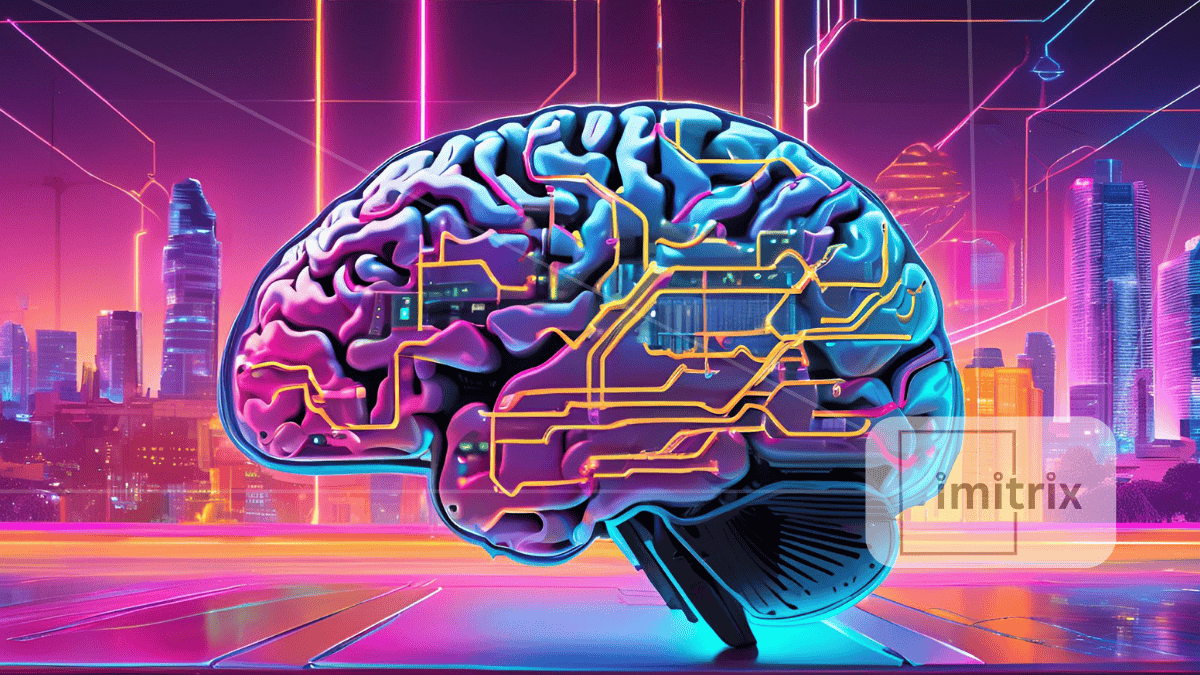Artificial Intelligence (AI) has come a long way—from beating chess champions to generating art, writing essays, and diagnosing diseases. It’s fast, tireless, and increasingly sophisticated. But the real question is: how does it stack up against the original intelligence machine—the human brain? This is the heart of the ongoing debate: AI vs the human brain. While AI can process vast amounts of data in seconds, it lacks the depth of emotional understanding, adaptability, and creativity that come naturally to us. The brain, shaped by millions of years of evolution, remains the most complex and efficient processor known to science. Comparing the two opens up fascinating discussions about cognition, consciousness, and the future of intelligence itself.
Speed and Efficiency: AI Wins
When it comes to raw processing power, AI wins without contest. A computer can perform millions of calculations per second. AI models like ChatGPT can summarize entire books in seconds, analyze vast data sets instantly, and run 24/7 without rest. Meanwhile, the human brain, though powerful, is relatively slow. It takes time to read, think, sleep, and reset.
In terms of memory and speed, AI doesn’t just compete—it dominates. No human can recall petabytes of data or analyze thousands of medical scans in minutes. In environments where speed and scale are everything—like logistics, finance, or data analytics—AI is the clear winner.
Creativity and Intuition: Human Brain Leads
Creativity isn’t just producing something new—it’s connecting unrelated ideas, improvising, breaking rules, and sometimes even making mistakes that lead to innovation. The human brain is built for this. We create music, write poetry, invent jokes, and imagine entire worlds.
AI can generate content that looks creative, but it relies on patterns from existing data. It can remix but not truly originate. Tools like Midjourney or GPT-4 can simulate creativity impressively, but they don’t feel, reflect, or experience. That matters.
Intuition, too, is a uniquely human edge. We make decisions based on gut feeling, subtle emotional cues, or life experience—something AI can’t replicate, no matter how much data it’s trained on.
Learning and Adaptability: A Draw
AI can learn fast. Feed it data, and it will adjust. Machine learning models can optimize themselves, predict trends, and even improve their own code. But this learning is narrow. An AI trained to detect tumors in X-rays won’t know how to play chess. Each task requires its own model, data set, and parameters.
Humans, on the other hand, are general learners. We can transfer knowledge across domains, adapt to new environments, and apply abstract reasoning. We can survive in a jungle, navigate a city, or figure out how to fix a leaking faucet—often with no prior training.
So who wins? In specific, focused tasks—AI. In general, cross-functional learning—humans.
Emotions and Social Intelligence: Human Brain
AI can mimic emotional intelligence. It can detect sentiment in text, generate empathetic replies, and even imitate human tone. But it doesn’t feel. It doesn’t experience joy, guilt, fear, or love. And that’s a key difference.
Humans use emotion to bond, trust, motivate, and collaborate. Social intelligence isn’t just about interpreting facial expressions—it’s about understanding unspoken context, cultural nuance, and shared experience. AI can fake this to a degree, but the human brain lives it.
In any field where trust, ethics, or empathy matter—therapy, leadership, teaching—the human brain holds the upper hand.
Reliability and Bias: Complicated
AI doesn’t forget, get tired, or make emotional decisions. It’s consistent. That’s good—for example, in quality control or repetitive tasks. But it’s also a risk. AI models learn from data, and data often reflects human bias. If the data is skewed, the AI will be too—just faster, and at scale.
Humans are also biased, of course. But we can reflect on our decisions, revise our thinking, and question our assumptions. AI lacks that self-awareness. It can optimize, but it can’t morally evaluate.
So in terms of reliability—it’s complicated. AI wins in consistency, but humans still have the edge in judgment.
Energy and Sustainability: Human Brain Wins (Surprisingly)
The human brain runs on about 20 watts of power—roughly what it takes to light a dim bulb. In contrast, training large AI models consumes massive energy—sometimes equivalent to the carbon footprint of multiple households.
Brains are energy-efficient. They evolved to perform complex tasks with minimal resources. Current AI is far less efficient, requiring powerful GPUs, server farms, and cooling systems. If we compare intelligence per watt, humans still dominate.
Consciousness: Still a Human Thing
AI doesn’t have self-awareness. It doesn’t think “I am.” It processes inputs and generates outputs. There’s no inner world, no desire, no personal identity.
The human brain, however, supports consciousness—the sense of being, the capacity to reflect, to dream, to suffer. We don’t even fully understand how this works, but we know it exists. AI, no matter how advanced, hasn’t crossed that line.
This isn’t just a philosophical point. Consciousness underpins ethics, accountability, and autonomy. A brain injury victim has rights. An AI doesn’t. That difference matters.
Collaboration: Best When Combined
Perhaps the real answer isn’t “AI vs Human Brain.” It’s AI and Human Brain.
AI augments what we do. It can help doctors catch early signs of disease, help writers generate ideas, or help engineers design better systems. But it’s most powerful when guided by human judgment, creativity, and ethics.
We’ve already seen the shift—AI writing tools helping authors, copilots for coding, automation in research. The future isn’t about replacing the human brain. It’s about enhancing it.
So… Who Wins?
If it’s a race of speed, scale, and memory—AI wins.
If it’s a contest of creativity, empathy, and consciousness—human brain wins.
But this isn’t a zero-sum game. The strengths are different. The real power is in using both wisely. AI is a tool—an incredibly powerful one—but it’s still a tool. The human brain remains the architect, the storyteller, the thinker behind the machine.
In the end, it’s not about who wins. It’s about how we work together.

